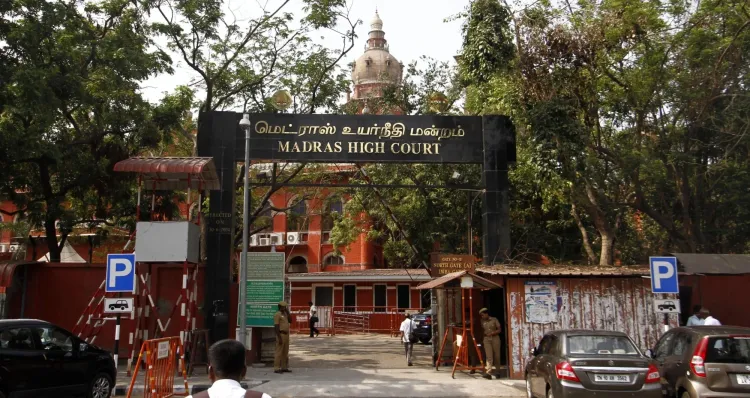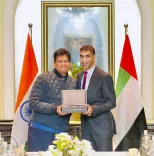Did the Madras HC Just Fine the ED Rs 30,000 for Delays?

Synopsis
Key Takeaways
- The Madras High Court imposed a fine on the ED for delays.
- The court questioned the legality of the ED’s searches.
- Petitioners argued no evidence linked them to corruption cases.
- The ED was required to pay the fine before the next hearing.
- Further extensions for the ED were conditional on payment of the fine.
Chennai, Aug 6 (NationPress) The Madras High Court has imposed a fine amounting to Rs 30,000 on the Enforcement Directorate (ED) due to its request for extra time to submit a counter-affidavit in relation to three petitions. These petitions contest the searches conducted at the residences of film producer Akash Bhaskaran and businessman Vikram Ravindran.
A division bench comprising Justices M.S. Ramesh and V. Laksminarayanan pointed out that in a previous hearing, the court had already provided the ED with additional time as a "last opportunity".
During Wednesday’s proceedings, ED Special Prosecutor N. Ramesh sought another extension, to which the bench responded that it would grant the request only if the costs were settled.
The court subsequently levied a fine of Rs 10,000 for each petition, instructing the ED to remit the funds before the upcoming hearing.
The petitions questioned the ED's actions regarding the search and sealing of the petitioners’ flats and offices. The petitioners argued that the properties were secured at the time of the search, and the ED had sealed them without any prior notice.
Previously, the High Court had ordered the ED to present the documents that justified the searches. Upon reviewing these records, it seemed that the authorization for the searches lacked jurisdiction, as no incriminating evidence was found against the petitioners.
The court emphasized that the materials provided by the ED did not reflect actionable information that warranted such actions. As a result, the court had suspended all actions taken by the ED regarding this matter.
During the hearing on Wednesday, the petitioners’ counsel contended that they had no ties to the corruption allegations involving the Tamil Nadu State Marketing Corporation (TASMAC).
The petitioners highlighted that the only connection mentioned by the ED was their phone numbers being stored in the mobile device of TASMAC's Managing Director. They clarified that there was no proof of communication through calls or WhatsApp messages with anyone associated with the case.
Special Prosecutor Ramesh argued that the Directorate required more time to craft a "comprehensive counter" and noted that the case had recently been assigned to new officers due to transfers.
However, the bench denied the request for an unconditional extension, asserting that any further delay would be granted solely upon the payment of the fine. The court allowed the ED a two-week period to submit its counter-affidavits in all three petitions.





